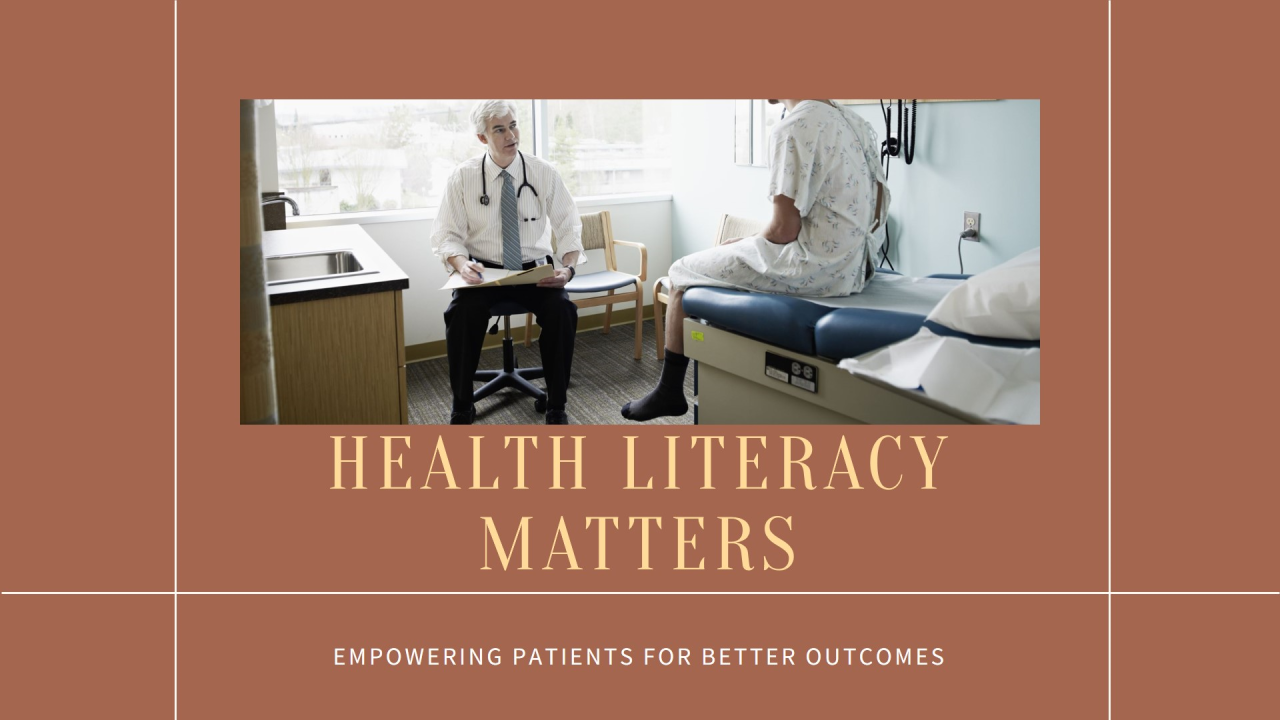In today’s complex healthcare landscape, health literacy has emerged as a vital component of individual and community well-being. Defined as the ability to obtain, process, and understand basic health information and services, health literacy influences how individuals make informed decisions regarding their health. It goes beyond merely reading prescription labels or understanding medical instructions; it encompasses a range of skills necessary for navigating the healthcare system and advocating for one’s own health. As healthcare becomes increasingly intricate, the significance of health literacy cannot be overstated. This article delves into the critical importance of health literacy, the factors influencing it, and strategies for enhancing it, ultimately highlighting its role in improving health outcomes for diverse populations.
The Importance of Health Literacy
Health literacy is essential for empowering individuals to take control of their health. High levels of health literacy enable people to interpret health-related information accurately, understand risks and benefits, and make informed choices that impact their health. Conversely, low health literacy can lead to misunderstanding medical conditions, ineffective self-management of chronic diseases, and poor adherence to treatment plans.
Research consistently shows that individuals with low health literacy face higher rates of hospitalization, increased morbidity and mortality, and greater healthcare costs. For instance, those struggling with health literacy may find it challenging to manage chronic conditions like diabetes or hypertension, leading to poorer health outcomes. Furthermore, low health literacy is often intertwined with health disparities, particularly among marginalized populations who may lack access to quality education and healthcare resources. By addressing health literacy, we can empower individuals to make informed health choices, leading to improved well-being and a reduction in healthcare inequities.
Factors Influencing Health Literacy
Several factors contribute to an individual’s level of health literacy, including socioeconomic status, education level, age, and cultural background. Individuals from lower socioeconomic backgrounds often encounter barriers to accessing quality healthcare, exacerbating health literacy challenges. Education level plays a significant role; individuals with higher educational attainment typically possess better health literacy skills, enabling them to navigate health information more effectively.
Age is another influencing factor. Older adults may experience cognitive decline or have limited familiarity with technology, making it more difficult for them to engage with complex health information. Additionally, cultural factors significantly affect health literacy. Language barriers, differing health beliefs, and varying levels of trust in healthcare systems can influence how individuals interpret and engage with health information. This highlights the necessity of adopting culturally sensitive approaches in health literacy interventions to ensure they resonate with diverse populations.
Strategies to Improve Health Literacy
Enhancing health literacy requires a multifaceted approach that incorporates education, community engagement, and policy initiatives. One effective strategy is the implementation of educational programs tailored to specific populations. Schools, workplaces, and community centers can offer workshops that teach individuals how to read and understand health information, navigate the healthcare system, and develop self-advocacy skills. Tailoring content to target groups, such as children, seniors, or immigrant communities, can enhance its effectiveness and accessibility.
Another essential strategy involves simplifying health information. Healthcare providers and organizations can improve communication by using plain language, clear visuals, and culturally relevant materials. For example, providing easy-to-understand medication instructions or health condition summaries can make a significant difference in how individuals comprehend their health needs. This simplification can empower patients to engage more fully in their healthcare.
Community engagement also plays a crucial role in fostering health literacy. Local organizations can host health fairs, support groups, and workshops to promote health literacy initiatives. Collaborating with community leaders and advocates can help reach underserved populations, making health information more accessible and relevant. These community-based efforts can create a supportive environment that encourages individuals to seek out and utilize health information effectively.
Conclusion
In conclusion, health literacy is a vital determinant of health outcomes that influences an individual’s ability to navigate the healthcare system and make informed health decisions. As the complexity of healthcare continues to grow, addressing health literacy has become essential for empowering individuals and reducing health disparities. By understanding the factors influencing health literacy and implementing effective strategies to enhance it, we can foster a healthier society. Through education, simplified communication, and community engagement, we can build a more informed public capable of advocating for their health, ultimately leading to better health outcomes for all.
